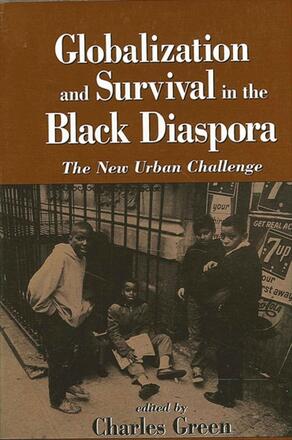
Globalization and Survival in the Black Diaspora
The New Urban Challenge
Alternative formats available from:
Links the plight of contemporary urban dwellers of African descent across North America, Europe, the Caribbean, Latin America, and sub-Saharan Africa, examines their coping strategies, and advocates social policies sensitive to their cultural and societal differences.
Description
This volume draws attention to the plight of urban blacks in the contemporary world and links their situation across five key global regions. It argues that while the world's population is predominantly urban, persons of African descent are disproportionately urbanized and impoverished, and it shows how significant changes in the global arena, among them new information technology, the increased hegemony of market structures, and the resulting socioeconomic instability, have altered the material circumstances of these and other poor and working-class urban dwellers. The book argues further that although the problems triggered by the late-twentieth-century challenge appear to impact blacks uniformly, the societal and cultural-specific dimensions of their plight should not be overlooked. Its findings and implications buttress the need for greater unity among urban blacks in the diaspora, as well as offer solutions that are sensitive to their societal and cultural differences.
Charles Green is Professor of Sociology at Hunter College. He is coauthor of The Struggle for Black Empowerment in New York City: Beyond the Politics of Pigmentation.
Reviews
"The construction of theory about the black experience in the 21st century cannot be grounded solely in the concept of the nation-state. With the transformation of productive forces, vast migrations of populations from rural to urban areas and the creation of new technologies, the social foundations for the reality of race are being radically transformed. Our ideas about the black diaspora are rapidly changing through the processes of globalization and urbanization. Charles Green's informative and provocative anthology outlines these vast social, economic, and cultural changes on a global scale. The traditional forms of racism and class domination are giving way to new forms of global exploitation. Globalization and Survival in the Black Diaspora points toward an urgently needed new perspective both in our scholarship and political world view. " — Manning Marable, Director, Institute for Research in African-American Studies, Columbia University
"This book's major contribution is to locate the problem of the black American underclass in a broad comparative perspective. It focuses on the problem of race and poverty in cities of North America, Western Europe, the Caribbean, Latin America, and sub-Saharan Africa. In doing so, it shows that the problems associated with the so-called underclass—long-term unemployment, crime, family instability, and alienated youth—are global phenomena. This is an important corrective to the parochial Americanist approach which tends to explain the phenomenon in terms of factors specific to the United States, such as deindustrialization and institutional racism. "— Robert C. Smith, author of We Have No Leaders: African Americans in the Post-Civil Rights Era
"This is a critically important topic; comparative analysis of black living conditions in the U. S. and abroad is lacking. The book is timely and it presents a broad treatment of the subject matter. It responds to a vacuum of information and it places U. S. attitudes within an international context. " — James Jennings, Trotter Institute, University of Massachusetts, Boston